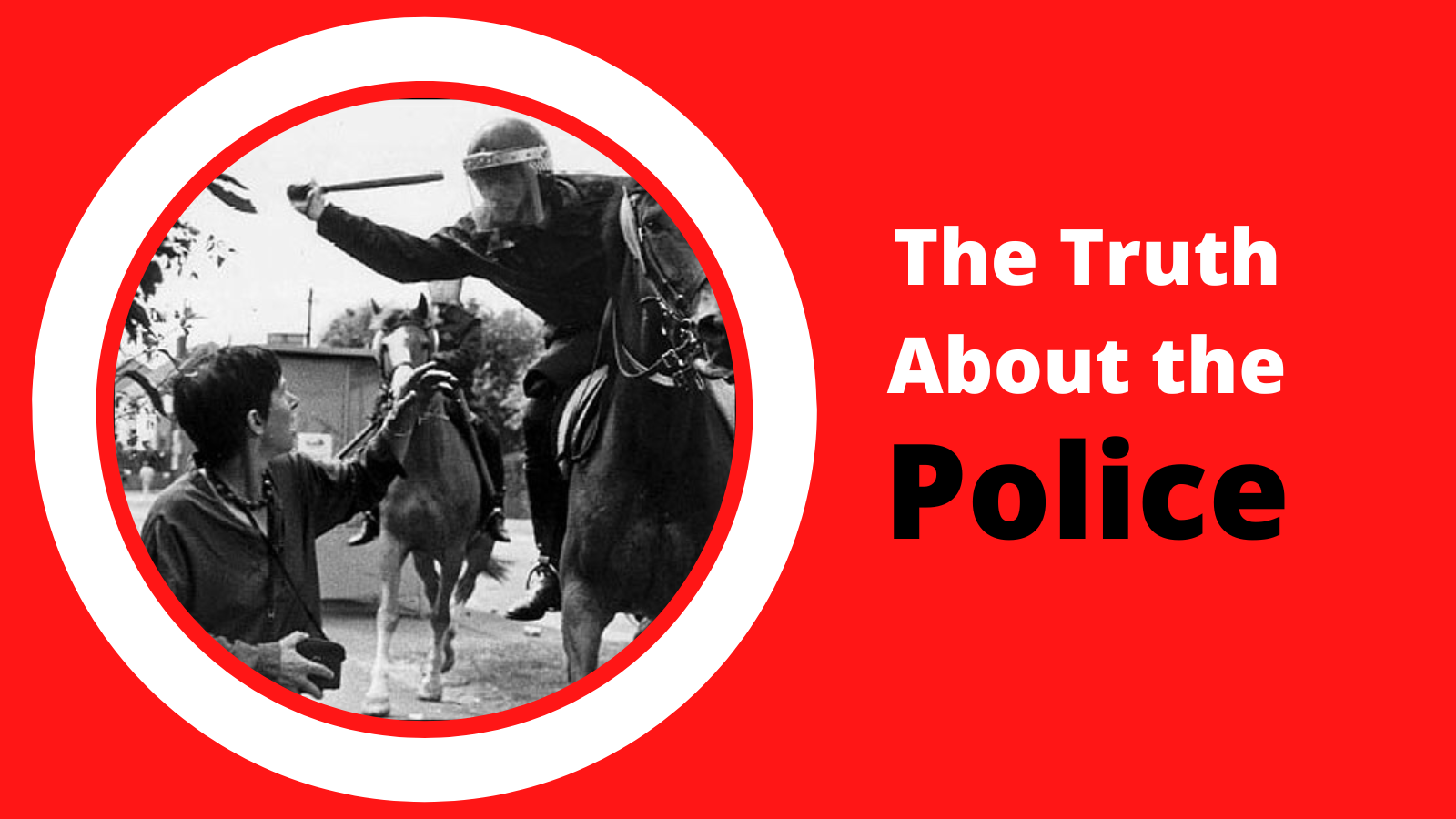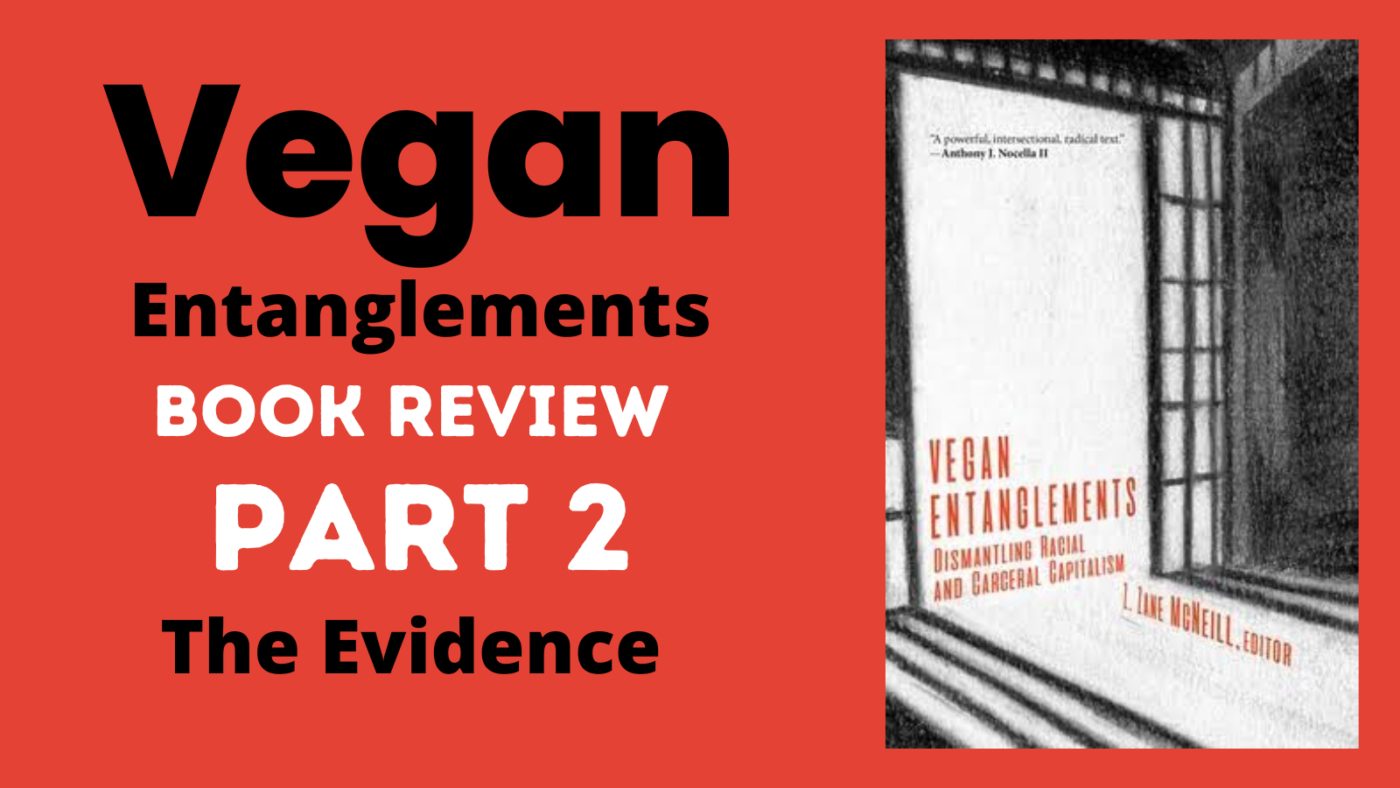In Part One of this book review we defined the key concepts and highlighted the main issues with carceral veganism and the ‘intersectional entanglements’ that link animal welfare with all other forms of liberation from oppression. In Part Two, we highlighted some of the key chapters, that set out a range of useful examples for understanding the true extent to which all forms of oppression are linked. This third section will focus on the contributions the book makes towards a way forward for the development of a truly anti-carceral veganism.
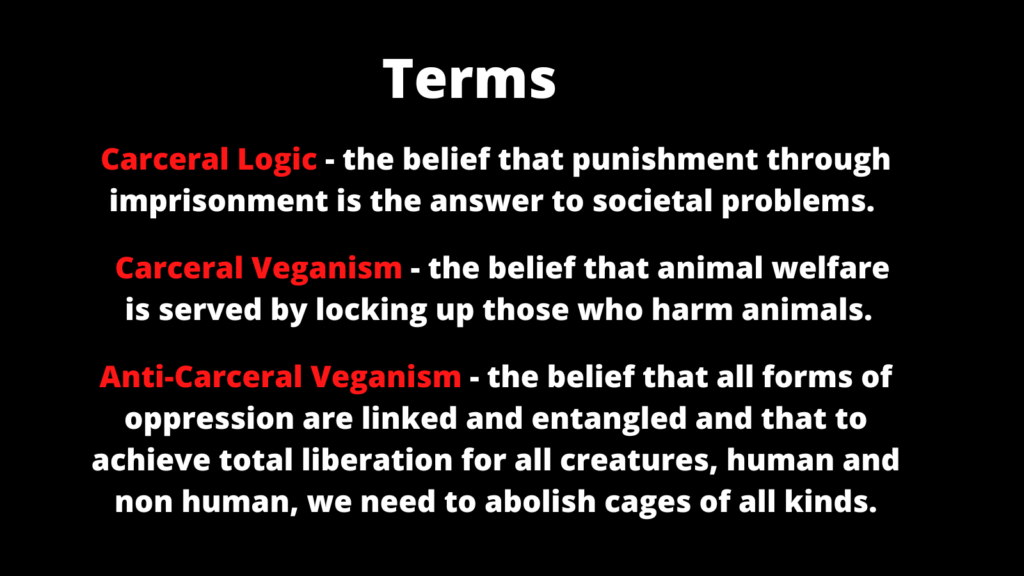
Towards a Collective Liberation
In this chapter Samuel Z Shelton discusses the three concepts of vegan exceptionalism, eco-accountability and the urgency of a new animal solidarity. The first concept, vegan exceptionalism, is defined as the tendency of (mainly) white middle-class, carceral-capitalists, to adopt a sense of moral superiority, based on their decision not to consume animal products. The author highlights the dangers in this form of exceptionalism, since a stark contradiction arises from the targeting of groups working in the animal industry, groups that are already oppressed and exploited, such as those from the community of black, indigenous and people of colour (BIPOC). By targeting oppressed groups, we tend to mask the culpability of than the farm owners and industry shareholders (mostly white middle-class) who are actually responsible for the harm done to animals.
This has the effect of generating what Shelton calls ‘horizontal hostility’ which in turn – ‘causes harmed folks to fight among ourselves and to miss out on opportunities for co-operation and collaboration’ (p121). Of course, the carceral state is perfectly happy to facilitate and support this approach, since it exists for the maintenance of the status quo, which entails both the maximisation of profit while hiding the truth about how these profits are made.
Carceral veganism links speciesism and ableism, through the hierarchisation, and prioritisation of bodies. We see some ‘human animals’ as ‘inferior’ if they are disabled, partly because we also rank some non-human animals in a hierarchical structure of importance. It is only by disrupting these links, that we can achieve equality between human and non-human animals.
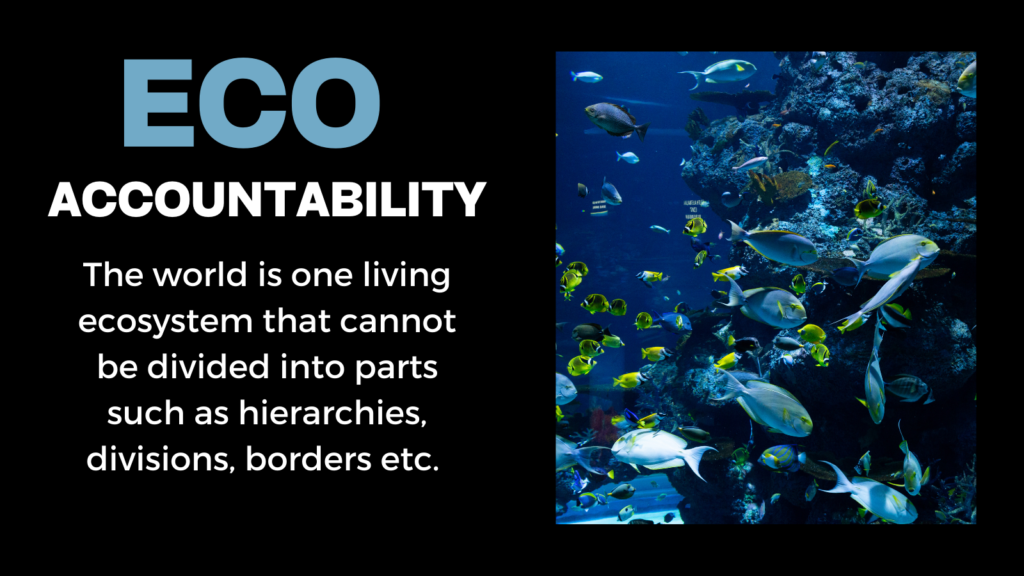
A possible solution to this is contained within the concept of eco-accountability. This approach, Shelton suggests, would see the world as one living ecosystem that cannot be divided into parts such as hierarchies, divisions, borders etc. All component parts of our socially constructed reality are linked and entangled, which means that all systems of oppression prop one another up – ‘we cannot hope to unmake them one at a time or on their own’ (p125). Eco-accountability involves taking shared responsibility, reflecting on relations of power and domination, and repairing the damage that we cause.
Anti-Carceral Veganism
Kanik Sud’s chapter gives a very insightful perspective from India proving that the issues surrounding carceral veganism are truly global. Sud claims that carceral veganism is built upon and sustains a ‘surveillance and detention framework’. Using the campaign slogan prevalent in contemporary India – “Abuse an Animal, Go to Jail”, Sud asks the question, ‘how does punishing perpetrators of abuse help in advocating for animal rights?’ Not only does the punishment paradigm do nothing for animal rights, the campaign slogan promising ‘Jail’ for abusers serves only to mask the truth about the animal industrial complex.
Through a detailed analysis of the division of labour in animal agriculture – looking at which groups are allowed to do which jobs – Sud exposes the extent to which the caste system in India (white supremacy and racism in other parts of the world) is inextricably linked to speciesism. By noting that some castes use their ownership of horses as a status symbol while other castes are forbidden from riding horses altogether, it becomes possible to see how these hierarchies combine to produce and strengthen forms of class or caste-based oppression. Taking this a step further Sud claims that carceral veganism emanates from the intersectional entanglement of capitalism, speciesism and patriarchy.
Toward a Counter Oppressive Veganism
The book ends with an inspiring chapter on how to build community through a truly transformative approach that facilitates a paradigm shift in the ways people organise themselves and their communities.
In their search for a way to achieve a counter oppressive veganism, Brown locates the problem as follows:
“Our sense of self and worldview are conducive to oppression because the means through which one learns to establish security through worth and esteem are dependent on external factors that are transitory and unreliable” (Myers 1991: 56)
Brown adds, ‘This puts one in a perpetual state of striving, extracting, acquiring, and controlling others to satisfy an inherent impulse that cannot be satiated through the means by which we are trying to do so. External values are in constant flux, which means that a solid sense of self needs to come from within, through intrinsic feelings of worth and value’ (page 152). Myers work (1991) makes the point that an extrinsic orientation and the need to be ‘better than’, is the basis of all of society’s “isms”.
Carceral logic relies on punishment and imprisonment to address real or perceived wrongdoing or harm. As a result, our criminal legal system ends up replicating patterns of harm rather than preventing them, reproducing the very cycles of harm, injustice and violence they are intended to prevent. Brown further critiques carceral veganism by making interesting points about the myth of closure in the punishment system (see page 156). She concludes this wonderful and vitally important book by drawing upon the work of the Courage of Care Coalition who advocate for building compassion-based, anti-oppressive, healing-centred, transformational and visionary practice communities.
Systems of oppression live in our bodies and our cultural practices, and thus we cannot simply legislate – or mediate – our way forward.
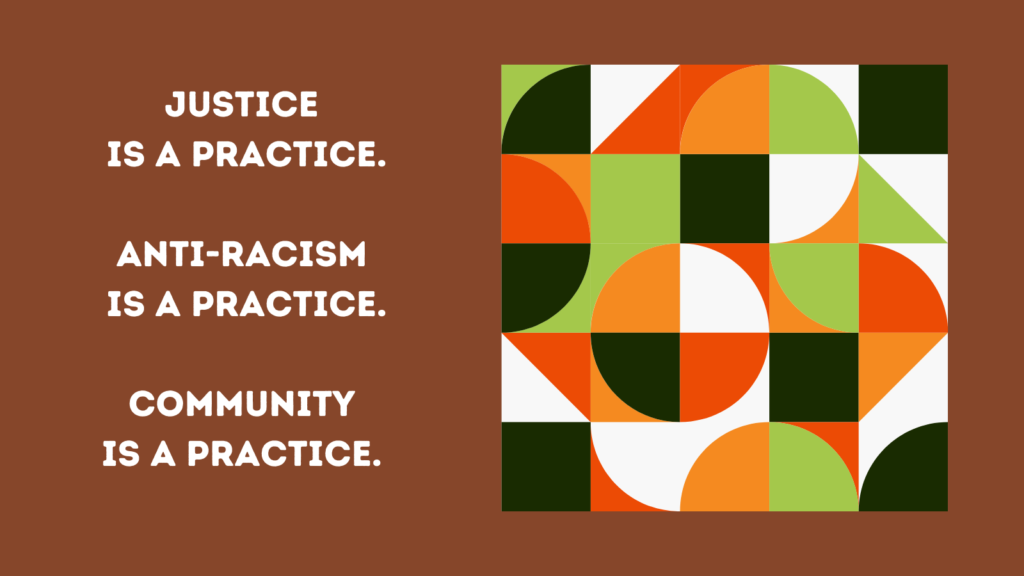
We could not recommend this book highly enough. It has emerged at a time when greater cooperation is required from a growing number of groups if we are to overthrow the oppressive structures of racism, ableism, misogyny, patriarchy, and class domination. Single issue groups, including most charities and even to a degree, the trade union movement, have to move beyond their own narrow focus and widen their gaze to bring all forms of oppression into view.
Oppression is a unified force. It will take a unified response in order to dismantle its structures and institutions.






